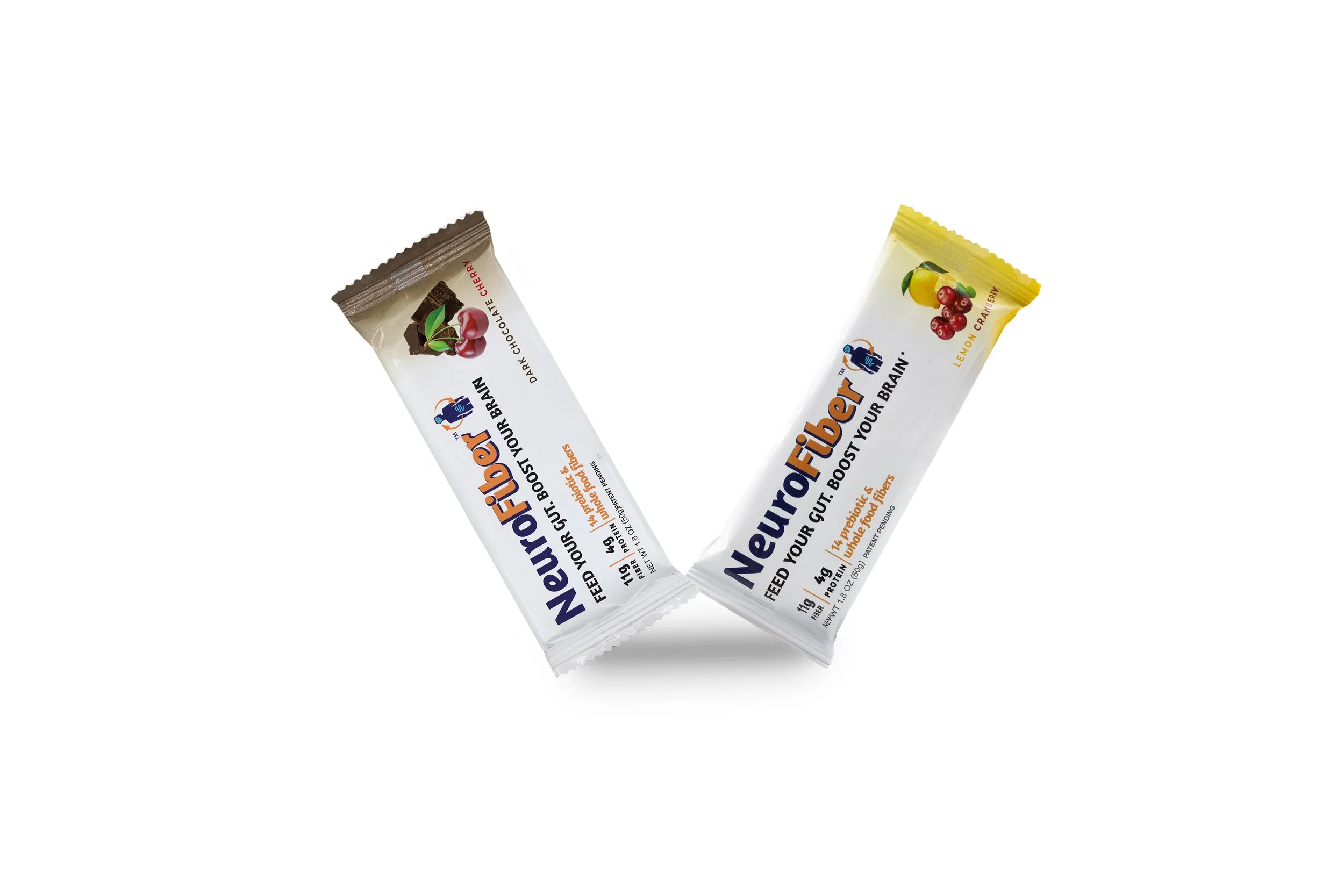What Experts Recommend In a Fiber Supplement, and Why We Created NeuroFiber
Real food. Real fiber. Real results.
Each bar delivers 11g of fiber to support regularity, reduce gut inflammation, and provide essential vitamins D, E, and B12.
Why 90% of Americans Aren’t Getting Enough Fiber and What to Do About It
According to TIME’s June 2025 article, Should You Take a Fiber Supplement?, the average American eats just 8 grams of fiber a day, far below the recommended 25 to 34 grams.
(Other health organizations, like the NIH and Institute of Medicine, recommend 25 grams for women and 38 grams for men.)
This shortfall can contribute to constipation, sluggish digestion, weight gain, and a higher risk of heart disease and colorectal cancer.
So what’s the solution? Experts in the article say that whole-food sources of fiber are ideal, but that supplements may help if they’re made with the right ingredients.
Let’s break down what the article says, and why NeuroFiber was designed to meet these expert-backed guidelines.
Why Whole Food Fiber Beats Isolated Additives for Gut Health
Dr. Bree Phillips, a UCSF Health dietitian, notes in the article that fiber from real food is best, not just because of the fiber, but because of all the extra nutrients it delivers. TIME reports that natural sources also tend to provide both soluble and insoluble fiber, which is key for a healthy gut.
Want to know the difference between soluble and insoluble fiber?
👉 Check out our quick guide on social
That’s why NeuroFiber bars use only real, plant-based ingredients, like nuts, seeds, and prebiotic whole-food fibers - no synthetic fillers, no fake “fiber cookies,” and nothing your gut can’t recognize.
Why Inulin and Other Common Fiber Additives Can Cause Gut Issues
According to Dr. Michelle Hughes of Yale New Haven Health, the popular fiber additive inulin doesn’t always deliver on health benefits, and can cause gas and bloating for many people. Other common ingredients like guar gum and methylcellulose may not suit every digestive system either.
NeuroFiber avoids all of them.
No inulin. No gums. No synthetic compounds. Just 14 real, plant-based prebiotic fibers that nourish your gut without the side effects.
4 Things to Look for in a
Quality Fiber Supplement
Dr. Anne Mongiu, co-director of the colorectal cancer program at Yale, outlined four key things to consider in a fiber supplement.
TIME’s checklist for fiber supplements—and how NeuroFiber stacks up
Experts say fiber supplements should come from natural sources, provide 3–5 grams of fiber per serving, contain no added sugars, and be easy to digest. NeuroFiber goes further—each bar offers 11 grams of real-food fiber, is naturally sweet, and is loved by sensitive guts for being gentle on digestion.
Fiber Bars vs Powders and Pills:
What’s Best for Gut Health?
TIME notes that while powders are versatile, many people don’t want to choke down pills or mix chalky drinks. That’s why we made NeuroFiber a bar you’ll actually enjoy eating.
You can keep it in your bag, eat it on-the-go, and feel good knowing it’s packed with:
Omega-3s
Antioxidant-rich green tea
Vitamins B12, D3, and E (often low in people with Parkinson’s or digestive issues)
No preservatives, no synthetic flavors
The Bottom Line on Fiber Supplements
and Gut-Brain Health
The experts are clear: fiber is essential, and natural, plant-based sources are the gold standard. But when your diet needs backup, be picky.
NeuroFiber checks every box from TIME’s guide—without compromise.
Try NeuroFiber Today
Support your gut and brain the natural way.
SHOP NOW
Sources
TIME: Should You Take a Fiber Supplement?
Read the articleNIH / Institute of Medicine: Dietary Fiber Recommendations
View the research



